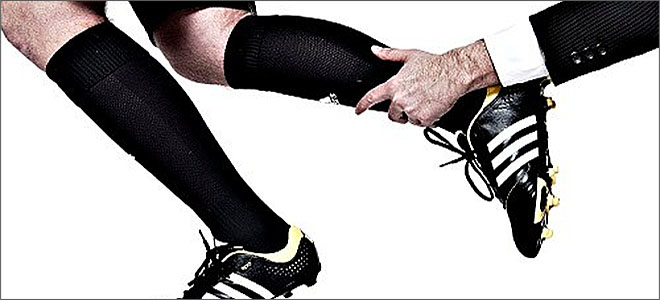Play the Game
April 16, 2015
by Stine Alvad
In a move to enhance awareness about and action against corruption in sport, Transparency International has launched a new initiative named ‘Corruption in Sport’ that collects and distributes knowledge and promotes collaboration on sports integrity.
Transparency International (TI) regularly publishes a ‘Global Corruption Report’ about a certain subject that they find to be of specific importance and relevant in the fight against corruption. The next Global Corruption Report by TI will focus on corruption in sport.
In the run up to the publication of this report, set for late this year, TI has opened a website as a “space for new analysis, commentary and recommendations by leading voices in the field of sports governance to strengthen transparency, accountability and participation,” writes TI.
Last week, the first content was released and it includes an interview with Play the Game’s international director, Jens Sejer Andersen, in which he explains his view on how sports corruption has gone from being something that was hardly ever talked about into being in the news daily. According to Andersen, this shift occurred around 2010 when FIFA awarded the 2018 and 2022 to Russia and Qatar respectively.
“By doing so FIFA alienated three very big bidding countries with huge international clout and a critical press: the US, Australia and the UK. This ensured that the landslide was moving,” Andersen says in the interview, in which he also repeats his call for more support for whistleblowers and investigative sports journalists. Read the interview here: Q&A with Jens Sejer Andersen: What made corruption a hot topic in sports
Governance practices have not kept pace
Among the other contributions to this initiative is also an article written by professor Roger Pielke Jr., in which he outlines the history of international sports organisations, a history that offers explanations to why transparency and accountability can be so difficult for international sports organisations to overcome.
According to Pielke, there is a historic reason for why good governance in sports organisations is so hard to come by.
“Sports organisations have come to ressemble corporations and other international institutions, but their governance practices, not only to address issues of corruption but beyond, have not kept pace,” writes Pielke.
“The vast amount of money flowing through these bodies, coupled with the financially significant decisions that they make, often at the highest level of politics and in the absence of best practices in place for government, creates settings amenable to corrupt practices.” Read more …


